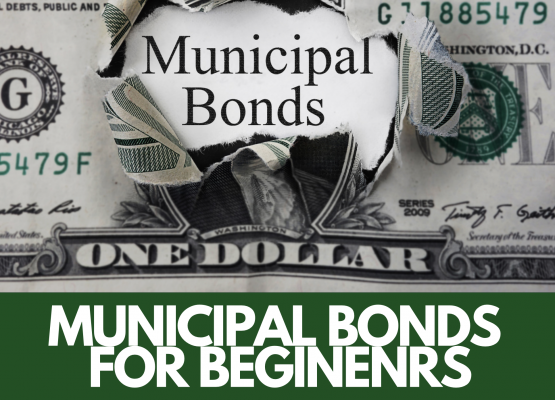Introduction
Importance of Estate Planning for Investors
Estate planning is essential in terms of protecting both your assets and your loved ones after you pass away. This is especially true if you are an investor and may have a decent amount of assets to pass on.
By ensuring proper estate planning, you can make sure that your assets are managed and distributed according to your wishes after your passing. Thus, effective estate planning ensures you preserve the wealth you’ve accumulated, and additionally that it benefits your heirs in the way you specifically intend. Without a proper estate plan, your investments and assets could be subject to lengthy probate processes, high taxes, and potential disputes among friends and/or family.
Overview of Key Components: Wills, Trusts, Tax Implications
A complete estate plan will often include several components:
- Wills: A will is a legal document that outlines how your assets should be distributed upon your passing. A properly structured will allows you the ability to appoint guardians for minor children, and additionally specifies your final wishes. A well-drafted will can help prevent conflicts among heirs, along with ensuring your estate is handled according to your instructions.
- Trusts: Trusts are legal arrangements where a trustee holds and manages assets on behalf of a designated beneficiarie(s). Trusts can be either revocable or irrevocable, and serve various purposes, including avoiding probate, reducing estate taxes, and even providing for beneficiaries with special needs. Trusts offer greater control over asset distribution, and can additionally provide both privacy and protection for your estate.
- Tax Implications: Estate planning involves understanding and planning for potential tax liabilities. This includes any possible federal and state estate taxes, inheritance taxes, and capital gains taxes. Effective tax planning strategies can help minimize the tax burden on your estate, along with maximize the wealth passed on to your heirs.
Aligning Estate Planning with Investment Goals for a Seamless Transition
Aligning your estate planning with your investment goals will be essential for a smooth transition of your assets. This involves:
- Ensuring Investment Liquidity: Ensure that your estate has enough liquid assets to cover any expenses, taxes, and/or distributions, without needing to sell off investments at inopportune times.
- Balancing Growth and Preservation: While you may focus on growth during your lifetime, it may be worth considering strategies to preserve capital and reduce risk as part of your estate plan, especially if your heirs are not as well versed financially.
- Regular Reviews and Updates: Life changes such as marriage, divorce, the birth of children, or significant changes in financial status should prompt a review and possible update of your estate plan. Regularly revisiting your estate plan, therefore, ensures it will remain aligned with your current investment strategy and goals.
By properly integrating estate planning into your overall financial strategy, you can ensure that your investments are properly managed and transferred according to your wishes, thus providing peace of mind for you and your beneficiaries. In the following sections, we will dive into each component of estate planning, along with how to properly align it with your investment goals & objectives.
Section 1: Understanding Estate Planning
1.1 What is Estate Planning?
Definition and Purpose of Estate Planning
Estate planning is the process of arranging for both the management and disposal of a person’s estate during their life and after death. It primarily involves creating a plan to ensure that your assets are dispersed according to your wishes, your family is provided for, and potential tax and legal issues are minimized.
Key Elements of Estate Planning
- Wills: A will is a legal document that specifies how your assets should be distributed after your death, names guardians for minor children, and appoints an executor to manage your estate.
- Trusts: Trusts are legal arrangements where a trustee holds and manages assets on behalf of beneficiaries. Trusts can help avoid probate, reduce estate taxes, and provide more control over asset distribution.
- Power of Attorney: A power of attorney is a legal document that grants someone you trust the authority to manage your financial and legal affairs if you become unable to do so.
- Healthcare Directives: Healthcare directives, including living wills and healthcare proxies, specify your healthcare preferences and designate someone to make medical decisions on your behalf if you become incapacitated.
1.2 The Benefits of Estate Planning
Ensuring Your Wishes Are Honored
Estate planning ensures that your assets are distributed according to your specific wishes. Without an estate plan, state laws will instead determine how your assets are divided, which may not align with your intentions. By clearly defining your desires, you can ensure that both your property and assets go to the people and organizations you care for the most.
Minimizing Family Disputes
Additionally, a well-structured estate plan can help minimize disputes among family members. By making your intentions specific, you can reduce the potential for both misunderstandings and conflicts. This is particularly important for complex family situations, such as blended families or estranged relatives.
Reducing Estate Taxes and Other Costs
Estate planning can help reduce the taxes and costs associated with transferring your assets. For example, you can use trusts, gifting strategies, and other tax planning techniques, you can minimize the estate taxes your heirs might owe. Additionally, proper planning can help avoid probate costs and legal fees, preserving more of your estate for your beneficiaries.
Providing for Loved Ones and Charities
Estate planning ensures that your loved ones are financially protected after your death. You can designate funds for your children’s education, provide for a spouse, or support elderly parents.
Furthermore, you can leave a lasting legacy by making charitable donations to organizations that are important to you. Estate planning allows you to make a meaningful impact on the causes you care most about.
Section 2: Key Components of Estate Planning
2.1 Wills
Definition and Importance of a Will
A will is a legal document that outlines how your assets should be distributed after your passing. It allows you to specify who will inherit your property, name guardians for your minor children, and appoint an executor to manage your estate. Creating a will is crucial because it provides clear instructions on how to handle your estate, helping to avoid disputes among heirs and ensuring that your wishes are carried out.
Without a will, your estate will be distributed according to state laws, which may not align with your personal wishes. This can lead to prolonged legal battles and potential conflicts among family members. A well-drafted will is a cornerstone of a comprehensive estate plan, providing peace of mind that your loved ones will be taken care of according to your intentions.
What to Include in a Will
- Assets: Clearly list all your assets, including any real estate, bank accounts, investments, personal property, and any other valuable items. Be sure to specify how these assets should be distributed among your beneficiaries.
- Beneficiaries: Identify the individuals and/or organizations that will inherit your assets. This can include family members, friends, charities, or other entities. Be specific in order to avoid confusion or disputes.
- Guardianship for Minors: If you have minor children, consider designating a guardian to take care of them in the event of your passing. This is an important component of your will, since it will ensure your children are cared for by someone you trust.
- Executor: Consider appointing an executor who will be responsible for managing your estate, paying any debts and taxes, and distributing your assets according to your will. Choose someone who you trust, and additionally believe would be capable of handling the responsibilities.
- Other Instructions: Consider providing any specific instructions or wishes you have regarding your funeral arrangements, care for pets, or other personal matters.
How to Create and Update a Will
Creating a Will:
- Choose a Method: You can create a will using online templates, will-writing software, or by working with an attorney. While online resources can be cost-effective, consulting with an attorney can be a good idea to ensure your will complies with both state laws and addresses all of the necessary details.
- Draft the Document: Outline all of your assets, beneficiaries, and specific instructions. Be clear and specific to avoid any potential discrepencies.
- Sign and Witness: For your will to be legally binding, it must be signed by you and witnessed by at least two individuals who will not be beneficiaries. Some states additionally require notarization.
- Store Safely: Keep your will in a safe place, such as a fireproof safe or a secure online storage service. Inform your executor and close family members where the will will be stored.
Updating a Will:
- Regular Reviews: Review your will regularly, especially after major life events such as marriage, divorce, the birth of a child, or significant changes to your financial situation.
- Making Changes: You can make changes to your will by creating a codicil (an amendment) or drafting a new will. Ensure any updates are signed and witnessed according to applicable state laws.
- Communicate Changes: Inform your executor and relevant family members of any changes to your will to ensure they are aware of your current wishes.
2.2 Trusts
Different Types of Trusts
- Revocable Trusts: Also known as living trusts, these can be altered or revoked by the grantor during their lifetime. They provide flexibility and control over ones assets.
- Irrevocable Trusts: Once established, these trusts cannot be altered or revoked. They offer greater tax benefits and asset protection, but limit the grantor’s control.
- Living Trusts: Created during the grantor’s lifetime, these trusts can either be revocable or irrevocable, and help to manage ones assets both before and after death.
- Testamentary Trusts: Established through a will, and only take effect after the grantor’s death. They are irrevocable once the grantor passes away.
Benefits of Setting Up a Trust
- Avoiding Probate: Trusts help bypass the probate process, thus allowing for faster and a more private distribution of assets.
- Protecting Assets: Trusts can protect assets from creditors and legal claims, providing a safeguard for beneficiaries.
- Controlling Distributions: Trusts allow for detailed instructions on how and when beneficiaries receive assets, thus offering greater control over the estate.
How to Establish and Manage a Trust
Establishing a Trust:
- Determine the Type of Trust: Choose the type of trust that best suits your specific needs and goals.
- Draft the Trust Document: Work with a licensed attorney to draft the trust document, outlining the terms, beneficiaries, and trustee.
- Fund the Trust: Transfer assets into the trust. This can include real estate, bank accounts, investments, and other valuable items.
Managing a Trust:
- Trustee Responsibilities: The trustee manages the trust according to the terms outlined in the trust document. This includes handling investments, distributing assets, and maintaining records.
- Regular Reviews: Periodically review the trust to ensure it still aligns with your goals and update it as necessary.
2.3 Power of Attorney and Healthcare Directives
Importance of Appointing a Power of Attorney
A power of attorney (POA) is a legal document that grants someone you trust the authority to manage your financial and legal affairs if you become unable to do so. Appointing a POA ensures that your affairs are managed according to your wishes, even if you are incapacitated.
Types of Power of Attorney
- Durable Power of Attorney: This form of POA remains in effect even if you become incapacitated. This is essential for long-term planning.
- Financial Power of Attorney: This form of POA grants the authority to manage financial affairs, including paying bills, managing your investments, and handling property transactions.
- Healthcare Power of Attorney: This form authorizes someone to make medical decisions on your behalf if you are unable to do so. This is often accompanied by a living will or healthcare directive.
Section 3: Aligning Estate Planning with Investment Goals
3.1 Integrating Estate Planning into Your Investment Strategy
Ensuring Your Investment Portfolio Reflects Your Estate Planning Goals
Aligning your investment portfolio with your estate planning goals is important to ensure that your wealth is transferred according to your wishes. This may involve reviewing your current investment portfolio(s) and making adjustments to reflect your long-term objectives. For example, if you intend to leave a significant portion of your estate to specific beneficiaries or charities, you may need to adjust your asset allocation to ensure those goals are met.
Balancing Growth and Preservation of Assets
As you approach retirement and beyond, the focus of your investment strategy may shift from growth to preservation. While it may be important to continue growing your portfolio to meet inflation and other financial needs, preserving your wealth will additionally becomes increasingly important to ensure it can be passed on to your heirs. This balance can be achieved by diversifying your investments, incorporating more stable and lower-risk assets, and regularly reviewing your asset allocation.
Considering the Liquidity Needs of Your Estate
Liquidity is a critical factor in estate planning. Having sufficient liquid assets in your estate can help cover expenses such as taxes, debts, and administrative costs without the need to sell off long-term investments or other valuable assets. Ensure your investment strategy includes a mix of liquid assets, such as cash and easily sellable securities, to meet these needs.
3.2 Regular Review and Updates
Importance of Regularly Reviewing and Updating Your Estate Plan
Estate planning is not a one-time event but an ongoing process. Regular reviews and updates are important to ensure that your plan remains aligned with both your current financial situation, goals, and any potential changes in terms of laws or regulations. Reviewing your estate plan annually or after major life events can help ensure that it continues to reflect your wishes and provides for your loved ones most effectively.
Responding to Life Changes
Major life events such as marriage, divorce, the birth of children, or significant changes in financial status should prompt an immediate review and potential update of your estate plan. These events can significantly impact your priorities and necessitate changes to beneficiary designations, guardianship arrangements, and asset distribution plans.
Adjusting Your Investment Strategy to Align with Updated Estate Plans
As your life circumstances change, your investment strategy may also need to be adjusted. For example, if you have a new child, you may want to invest more in education savings accounts or insurance policies to provide for their future. Similarly, if your financial situation improves significantly, you might consider setting up trusts or making charitable contributions as part of your estate plan. Regularly updating your investment strategy ensures it remains aligned with your estate planning goals.
3.3 Working with Professionals
The Role of Financial Advisors, Estate Planners, and Tax Professionals
Professional guidance is invaluable when it comes to estate planning and investment management. Financial advisors can help you develop and adjust your investment strategy to meet your long-term goals. Estate planners in particular can specialize in creating and updating wills, trusts, and other legal documents to ensure your estate is managed according to your wishes. Finally, tax professionals can provide advice on minimizing tax liabilities and ensuring compliance with applicable tax laws.
How to Choose the Right Professionals for Your Needs
Choosing the right professionals involves considering their expertise, experience, and compatibility with your personal and financial goals. Look for advisors who have relevant certifications and a track record of helping clients with similar needs. It is also important to feel comfortable with your advisors and confident in their ability to understand and support your goals.
The Benefits of a Coordinated Approach
A coordinated approach involves having your financial advisor, estate planner, and tax professional work together to develop a comprehensive plan that aligns with both your investment strategies and estate planning goals. This collaboration can help to ensure that all aspects of your financial life are considered, providing a more holistic and effective approach to managing and transferring your wealth.
Conclusion
Recap of the Importance of Estate Planning for Investors
Estate planning is an essential aspect of financial management for investors. It ensures that your assets are distributed according to your wishes, minimizes potential tax liabilities, and provides for your loved ones. By incorporating estate planning into your investment strategy, you can protect your wealth, reduce the risk of family disputes, and create a lasting legacy. The key components of a comprehensive estate plan—wills, trusts, powers of attorney, and healthcare directives—work together to provide a clear and organized approach to managing and transferring your assets.
Encouragement to Start Planning Early and Update Regularly
Starting your estate planning early can allow you to take full advantage of strategies to minimize taxes and the value of your estate. It also ensures that your wishes are documented and can be followed in the event of an unexpected situation. Regular updates to your estate plan are therefore essential to account for any possible changes in your financial situation, family dynamics, and/or legal requirements. By revisiting your estate plan periodically, you can ensure it remains aligned with your current goals and circumstances.
Final Thoughts on Achieving Peace of Mind Through Comprehensive Estate Planning
A well-crafted estate plan provides peace of mind, knowing that your assets will be managed and distributed according to your wishes, and that your loved ones will be cared for. It also helps reduce the stress and uncertainty for your heirs, providing them with clear guidance and support during a difficult time. By working with financial advisors, estate planners, and/or tax professionals, you can create a highly impactful & effective estate plan. Comprehensive estate planning is not just about preparing for the future; it’s additionally about ensuring that your legacy endures, and your financial goals are achieved.




